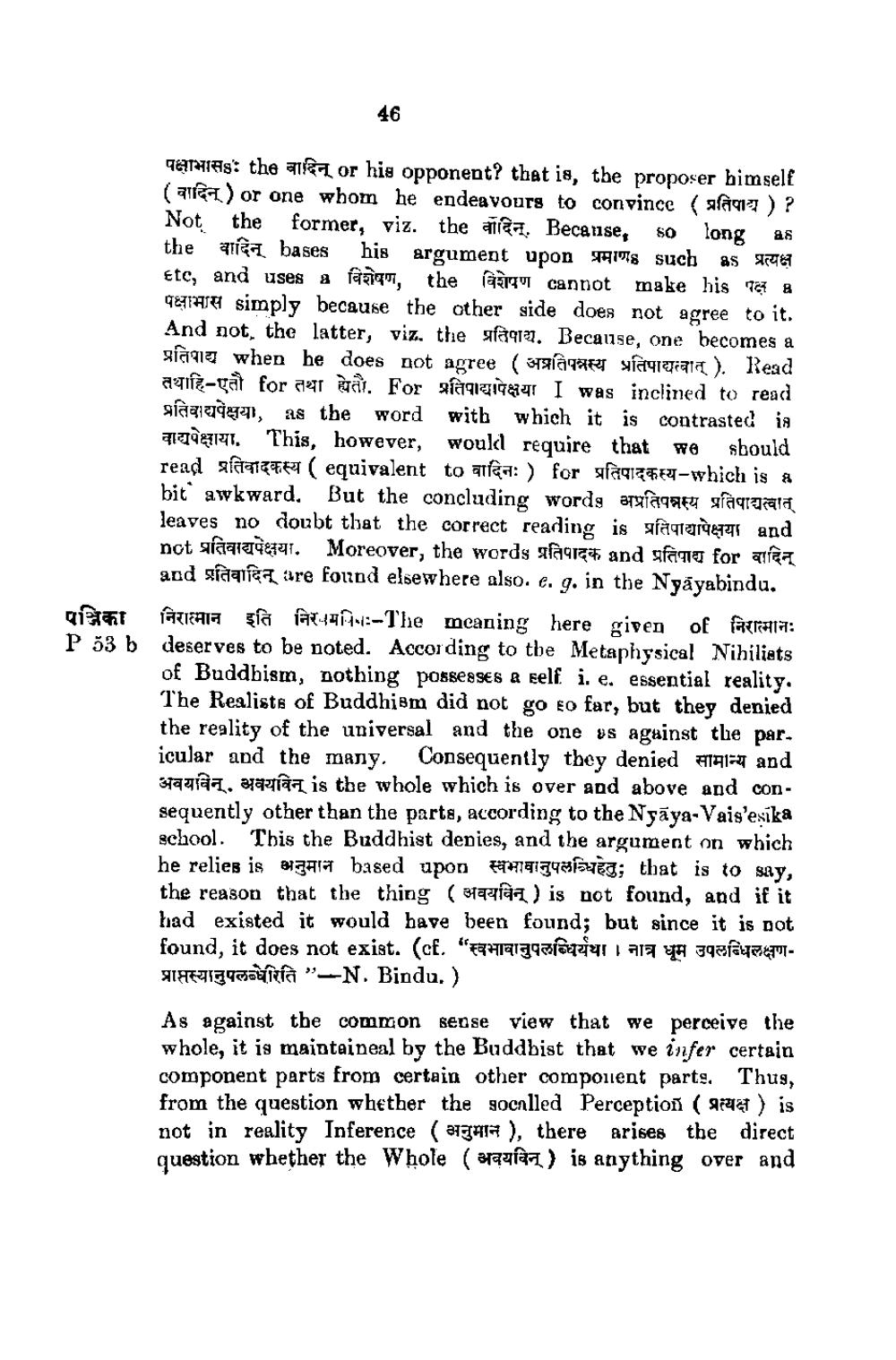________________
46
qars: the age or his opponent? that is, the proposer himself (a ) or one whom he endeavours to convince ( alama ) ? Not the former, viz. the aida. Because, so long as the quiet bases his argument upon Tin such as Ete, and uses a विशेषण, the विशेषण cannot make his पक्ष । WAA simply because the other side does not agree to it. And not, the latter, viz. the fa9127. Because, one becomes a प्रतिपाद्य when he does not agree (अप्रतिपत्रस्य प्रतिपाद्यत्वात् ). Read तथाहि-एतौ for तथा घेतो. For प्रतिपाद्यापेक्षया I was inclined to read sidagòn, as the word with which it is contrasted in 1 9. This, however, would require that we sbould read प्रतिवादकस्य ( equivalent to वादिनः) for प्रतिपादकस्य-which is a bit' awkward. But the concluding words apysaqary sfàqrazala leaves no doubt that the correct reading is gratari and not प्रतिवाद्यपेक्षया. Moreover, the words प्रतिपादक and प्रतिपाद्य for वादिन्
and sfaaier are found elsewhere also. e. g. in the Nyāyabindu. gift (@TifaTa la facci:-The meaning here given of fatrana: P 53 b deserves to be noted. According to the Metaphysica! Nihiliets
of Buddhism, nothing possesSES & Eelf i. e. essential reality. The Realists of Buddhism did not go so far, but they denied the reality of the universal and the one ys aguinst the par. icular and the many. Consequently they denied A1914 and अवयविन् . अवयविन् is the whole which is over and above and consequently other than the parts, according to the Nyāya-Vais'exika school. This the Buddhist denies, and the argument on which he relies is अनुमान based upon स्वभावानुपलब्धिहेतु; that is to say, the reason that the thing ( fa ) is not found, and if it had existed it would have been found; but since it is not found, it does not exist. (cf. "Haiqqa zien 212 m gayahStiguria "-N. Bindu. )
As against the common sense view that we perceive the whole, it is maintaineal by the Buddbist that we infer certain component parts from certain other component parts. Thus, from the question whether the gocalled Perception ( 9242 ) is not in reality Inference (217#1), there arises the direct question whether the Whole ( sayin ) is anything over and




